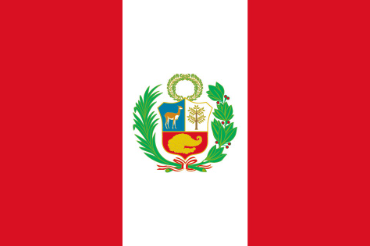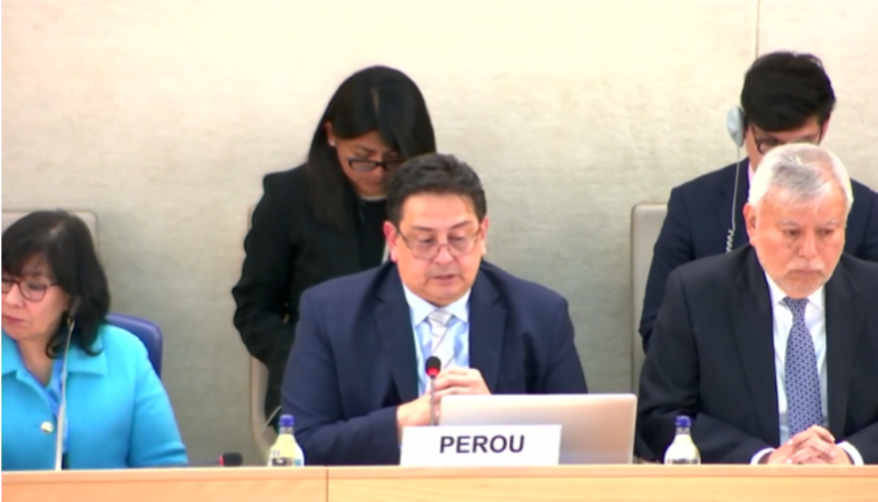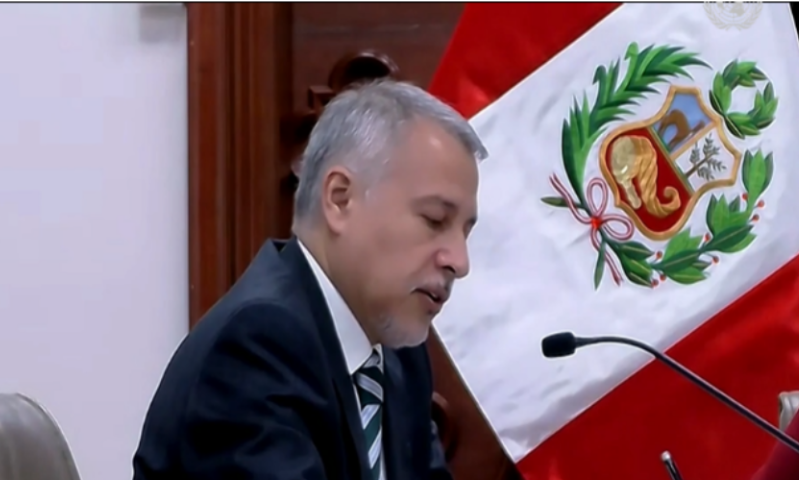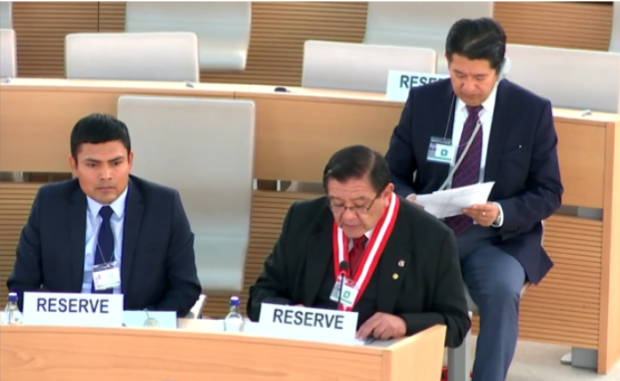The 42nd session of the Universal Periodic Review
23th January – 1st February 2023
Review of Peru - 4th cycle
25th January 2023

By Juanita Beltrán / GICJ
Executive Summary
“The protests embody the demands of the people that have never been met. The death of my Peruvian brothers and sisters during those protests must not go unpunished” remarked Americo Gonza Castillo, member of the Peruvian congress, during the 42nd Universal Periodic Review on the 25th of January 2023.
During the previous cycle, Peru faced 177 recommendations from 69 different delegations for the period under review (2017-2022). Now, after the fourth cycle, progress was shown in topics regarding human rights. The review highlighted different areas where the Peruvian delegation has shown improvements, as well as the challenges that are still ahead. The delegation was headed by Jose Andrés Tello Afaro, Minister of Justice and Human Rights.
Geneva International Centre for Justice (GICJ) commends the Peruvian delegation on its fourth cycle. We welcome the different national policy strategies presented in the national report, which seek to tackle discrimination at all levels, as well as promote gender equity mainly in political participation. Nonetheless, we urge the delegation to take action regarding the ongoing protests the country has been facing since December 2022. As a result, fundamental human rights have been violated. We call Peruvian authorities to manage the political crisis in line with international law standards.
Background
Based on resolution 60/251 of 2006 each UN member state´s obligations under international law are revised. Peru has done so far four reviews: 2008, 2012 , 2017 and 2023. During the review sessions, the other UN member states express their recommendations regarding different important topics discussed in the official reports.
Considering the different recommendations from the previous cycle, the stakeholders, the Special Rapporteur and experts, and the national team delivered official reports with observations during the fourth cycle.
The Universal Periodic Review is based on the examination of three main reports: The national report, the UN compilation report, and the stakeholder´s information.
Interactive Dialogue
 Mr. Luis Juan Chuquihuara, Ambassador of Peru opened the floor by acknowledging the happenings on the 6th of December, when the coup d´état took place. Since then, the constitutional replacement of the president has unleashed protests in the whole country, resulting in 50 deaths thus far. Jose Andres Tello, the minister of Justice and Human Rights, emphasized the role of the multisectoral commissions, which will help support those who have lost loved ones and were seriously injured. Afterwards, Ms. Nancy Rosalina Tolentino, Ministry of Women and Vulnerable Populations, outlined the National Gender Equality Policy so the state makes a reduction in violence against women, ensures participation in decision making and reduces discrimination in public and private spheres. The Vice Minister of Justice and Human Rights, Mr. Luigino Pilotto shed light to the adoption of a series of strategies to modernize public policy, among them the National action plan for business and human rights 2021-2015 seeks to comply with business activities with human rights in cooperation with different sectors of society. After a round of observations, Jorge Salas Arenas, president of the national election commission mentioned the progress made regarding equality in the electoral system. A big contributor to this is law No. 31030, which promotes parity among candidates for the presidency, regional and municipal elections.
Mr. Luis Juan Chuquihuara, Ambassador of Peru opened the floor by acknowledging the happenings on the 6th of December, when the coup d´état took place. Since then, the constitutional replacement of the president has unleashed protests in the whole country, resulting in 50 deaths thus far. Jose Andres Tello, the minister of Justice and Human Rights, emphasized the role of the multisectoral commissions, which will help support those who have lost loved ones and were seriously injured. Afterwards, Ms. Nancy Rosalina Tolentino, Ministry of Women and Vulnerable Populations, outlined the National Gender Equality Policy so the state makes a reduction in violence against women, ensures participation in decision making and reduces discrimination in public and private spheres. The Vice Minister of Justice and Human Rights, Mr. Luigino Pilotto shed light to the adoption of a series of strategies to modernize public policy, among them the National action plan for business and human rights 2021-2015 seeks to comply with business activities with human rights in cooperation with different sectors of society. After a round of observations, Jorge Salas Arenas, president of the national election commission mentioned the progress made regarding equality in the electoral system. A big contributor to this is law No. 31030, which promotes parity among candidates for the presidency, regional and municipal elections.
The Minister of Development and Social Inclusion, Julio Mayca mentioned the National Strategy Plan 2050 as a vision of the future with full equality of opportunity. Further, the eradication of poverty and the social inclusion plan 2031 which recognizes exclusion as a problem that contributes to poverty. The Director of cooperation of the international affairs office, Silvia Martinez, highlighted the importance of education not only in indigenous communities, but also in populations over the age of 15 with illiteracy. The ministry of health, Sara del Pilar, noted the challenges that the country overcame to prevent and reduce infections during Covid-19. One of the major highlights is the national vaccination plan, with over 26 million Peruvians with 2 doses. Furthermore, the minister for labor, Cecilia Guerrero, presented the advances Peru has made to provide a safe workplace for all, emphasizing the efforts to abolish child labor. Regarding environmental matters, Hector Quinones, outlined the environmental policy in 2021 which seeks to improve environmental performance and reduce deforestation; this also goes hand in hand with the protection of environmental defenders specially in the Amazon. Finally, Daniel Jara, officer for the specialized crimes in trafficking and drugs, remarked the prosecutorial action protocol for the prevention and investigation of crimes against human rights defenders as a tool to guarantee their fundamental rights through convictions achieving the clarification of the happenings.
the eradication of poverty and the social inclusion plan 2031 which recognizes exclusion as a problem that contributes to poverty. The Director of cooperation of the international affairs office, Silvia Martinez, highlighted the importance of education not only in indigenous communities, but also in populations over the age of 15 with illiteracy. The ministry of health, Sara del Pilar, noted the challenges that the country overcame to prevent and reduce infections during Covid-19. One of the major highlights is the national vaccination plan, with over 26 million Peruvians with 2 doses. Furthermore, the minister for labor, Cecilia Guerrero, presented the advances Peru has made to provide a safe workplace for all, emphasizing the efforts to abolish child labor. Regarding environmental matters, Hector Quinones, outlined the environmental policy in 2021 which seeks to improve environmental performance and reduce deforestation; this also goes hand in hand with the protection of environmental defenders specially in the Amazon. Finally, Daniel Jara, officer for the specialized crimes in trafficking and drugs, remarked the prosecutorial action protocol for the prevention and investigation of crimes against human rights defenders as a tool to guarantee their fundamental rights through convictions achieving the clarification of the happenings.
Right to peaceful assembly and free elections
 Peru has now been facing a crisis for almost two months. Within this period several human rights violations have been committed, even resulting in unfortunate deaths. The Peruvian delegation acknowledged the difficult situation the country is facing since the waves of political instability started to increase due to high prices, a general discontent with the current office and the impeachment of ex-president Castillo. The situation escalated further when the vice-president, who took the office term, declared a state of emergency in different regions. This means that people have come out to protest and face the risk that the military opens fire. The minister of justice and human rights, Jose Tello, stated that the Peruvian state rejects all forms of violence and awaits the elections planned for April 2023. Furthermore, he added that the elections should lead to a political transition based on dialogue and peace. To this end, the office of human rights coordination will be monitoring the events protecting the protestants.
Peru has now been facing a crisis for almost two months. Within this period several human rights violations have been committed, even resulting in unfortunate deaths. The Peruvian delegation acknowledged the difficult situation the country is facing since the waves of political instability started to increase due to high prices, a general discontent with the current office and the impeachment of ex-president Castillo. The situation escalated further when the vice-president, who took the office term, declared a state of emergency in different regions. This means that people have come out to protest and face the risk that the military opens fire. The minister of justice and human rights, Jose Tello, stated that the Peruvian state rejects all forms of violence and awaits the elections planned for April 2023. Furthermore, he added that the elections should lead to a political transition based on dialogue and peace. To this end, the office of human rights coordination will be monitoring the events protecting the protestants.
Norway, Croatia, Algeria among other delegations advocated for an immediate stop tothe excessive use of force by the security forces, calling for the protection of the right to peaceful assembly. Additionally, the delegations showed concerns regarding the limited investigative journalism on the December protests in Peru. The delegate of Colombia outlined the importance of granting the independence of functions in law and constitution to the electoral system. He recommended readable measures to guarantee free, independent elections for the upcoming office term.
Development, Environment, and human rights defenders
According to the reports submitted, deforestation and forest loss had continued in the Amazon. Mining being one of the main activities affecting this ecosystem. Recommendations were made on the effective implementation of public policies to counteract deforestation and pollution, including the eradication of illicit activities, such as logging. The delegation presented the National Action Plan on Business and Human Rights 2021-2025, which aims to prioritize human rights in business activities involving state institutions, indigenous peoples, and the business sector. Although the plan was welcomed successfully among the international community, some stakeholders have noted it has been insufficiently implemented and that the right of participation had been violated.
Several delegations recommended taking action regarding vulnerable groups affected by environmental issues, such as indigenous groups. The United States of America, Timor Leste, Thailand and others mentioned to improve consultation with indigenous people concerning the consequences of extraction. Additionally, to step up the efforts of human rights mechanisms to adopt mitigation and adaptation measures, in order to cover all basic needs of the population.
Child labor
Another salient issue discussed during the review was the measures Peru has taken to abolish child labor. Just in the mining sector, there are children who live under economically exploitative conditions. Most of them work as “quimbalateros” or stone crushers, who quarries ore from gold rocks (1). This type of labor harms children physically and mentally causing a disruption in their education to fulfill the family needs. Certainly, efforts have been made to eliminate this issue. For instance, the labor minister highlighted the guidelines for implementing a municipal tool to eradicate child labor derived from the technical standards for child labor prevention through decree 1999 law on domestic work. However, this issue still troubles the majority of children seeking to receive better education and break poverty cycles.
The delegation of Gambia, Uruguay, Philippines, among others welcomed the efforts of volunteers that save children from street situations. Nevertheless, the delegations also called to step up the efforts to implement a national policy on rights of street children and ensure basic services.
Position Geneva International Centre for Justice (GICJ)
Geneva International Center for Justice (GICJ) welcomes the efforts made during the 42nd Universal Periodic Review. We call on Peru to continue taking the necessary measures to improve the human rights framework within the legal constitution of the country. We urge Peru to provide protection to the victims of the protests due to the political instability the country is currently facing. The alarming declaration of state of emergency in different regions during which constitutional guarantees are suspended should not be arbitrary and allow for more violence to take place using military deployment. Furthermore, we stress the importance of stepping up actions to abolish child labor as it violates fundamental rights of Peruvian children. Finally, we recommend Peru to sign the Escazu agreement.
Geneva_International_Center_for_Justice Geneva UPR Fourth_Cycle Protests GICJ Peru
References:




